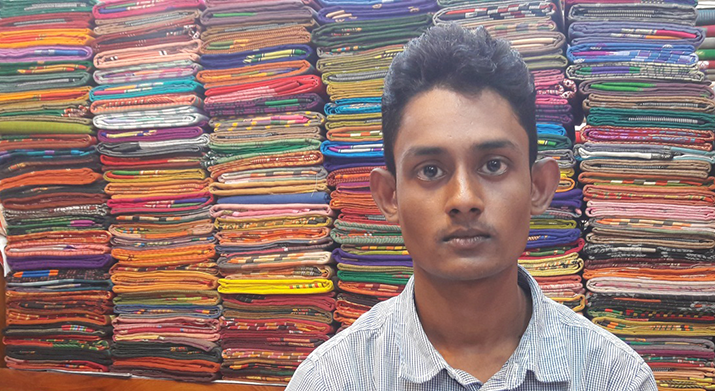The Importance of Social Support for Multidrug-Resistant TB Patients in Bangladesh
The Importance of Social Support for Multidrug-Resistant TB Patients in Bangladesh

Bangladesh is a global hotspot for TB, and the country’s government and its partners are hard at work to find and treat missing cases of TB and prevent the spread of multidrug-resistant TB (MDR-TB). The available treatment for MDR-TB is expensive, lengthy, and complex, and the disease is often considered a death sentence. At the start of the USAID-funded Challenge TB (CTB) project in 2015, nearly 900 of the approximately 210,000 Bangladeshis diagnosed with TB were found to have MDR-TB.
Bangladeshi garment factories—where people work closely together and ventilation is often poor—provide textbook conditions for the spread of TB. With support from CTB, the National TB Control Program began organizing TB clinics near clusters of clothing factories to better reach workers with TB education and free screening programs. They also contacted supervisors to explain that, according to national law, no one should lose their job while being treated for TB.
Two years after his father died, Mohammed Rasel left his village to work in a Dhaka garment factory. At just 14, he was proud of being able to support his family, but six years later he began to feel weak, lost his appetite, and developed a bad cough that only seemed to get worse.
At first, the fact that he had TB was missed, but when he didn’t get better his sputum was tested and TB was confirmed. He received six months of directly observed treatment (DOT) from the Upazilla Health Complex, after which he was pronounced TB free.
But three months later the symptoms came back, and he was diagnosed with a form of TB that is resistant to first-line drugs. He spent seven months in the MDR-TB ward of the Pabna Chest Disease Hospital. His treatment was free, but he worried about how his family would survive while he was not able to work.
To ease the financial burden on Rasel and other patients who cannot work and make it more likely that they will complete treatment, CTB supports the Department of Social Services to provide social support. The most tangible part of this support is a stipend sent by mobile money to the patient’s phone. This stipend can be used to cover the cost of additional medicines like vitamins and anti-vomiting drugs, reimburse travel costs, buy food, etc.
![[A community DOT provider visits Rasel's home. Photo credit: Challenge TB Bangladesh]](https://msh.org/wp-content/uploads/2019/07/mdr_patient_rasel_for_social_support_1.jpg)
Rasel faces at least 13 more months of MDR-TB treatment at home provided by a community DOT provider. If a patient is receiving DOT in their community, their DOT provider also receives a small financial incentive to visit his or her patients every day. In this way, the disease’s deadly transmission cycle is being gradually broken.
After a few more months of treatment, Rasel was able to start working again. He is grateful for both the free treatment and the social support, especially the stipend to support his family. “It would not have been possible for me to have continued the treatment without the financial support,” he says. With the help of his DOT provider, Rasel talked to his co-workers and explained his disease. He assured them that they are not at risk and they understand the situation and have all been very supportive of Rasel and his recovery.